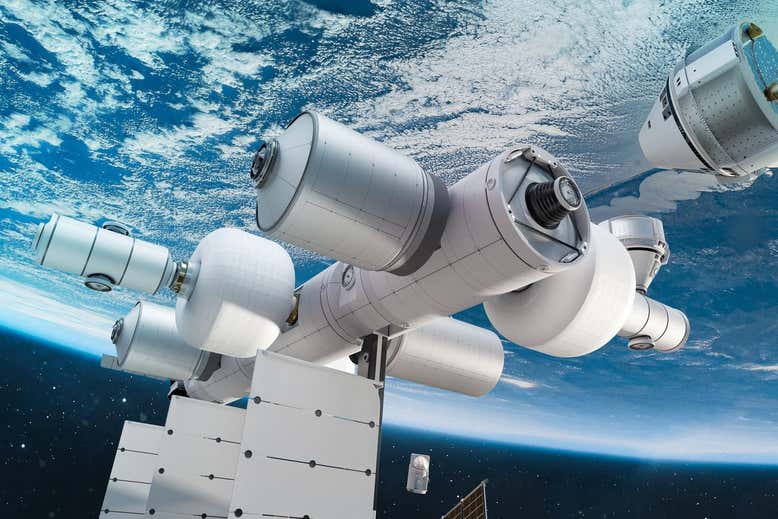So would the private station be a viable replacement for the ISS? The ageing station, which is a partnership between the US, Russia and other nations, is only funded until 2,024 with a 2028 extension looking probable, but it cannot last forever.
Blue Origin says its space station will be fully operational in the late 2020s, but deadline slippage is common when it comes to huge space-related projects like this one. “They can dream of being fully operational in the late 2020s, but in the space sector they often aim for aspirational targets and if they miss it by a year or two or three then they at least have something they’re aiming for until then,” says space analyst Laura Forczyk. “It’s almost inevitable that things take longer and are more expensive than planned.”
Full Story:
Blue Origin, the space-flight firm owned by Amazon founder Jeff Bezos, is planning to build a space station – with the hopes that it could replace the International Space Station (ISS), which is reaching the end of its life.
The Orbital Reef space station, which Blue Origin is developing in partnership with other space firms including Sierra Space and Boeing, is intended to be a multipurpose destination in orbit, where different companies and governments could pay to send their own astronauts and experiments, and space tourists could visit, says the firm. The station is proposed to be slightly smaller than the ISS, with capacity to house 10 astronauts – the ISS generally carries seven crew members, but it has had as many as 13 at a time.
“We will expand access, lower the cost, and provide all the services and amenities needed to normalize space flight,” said Blue Origin’s Brent Sherwood in a statement. “A vibrant business ecosystem will grow in low Earth orbit, generating new discoveries, new products, new entertainments, and global awareness.”
